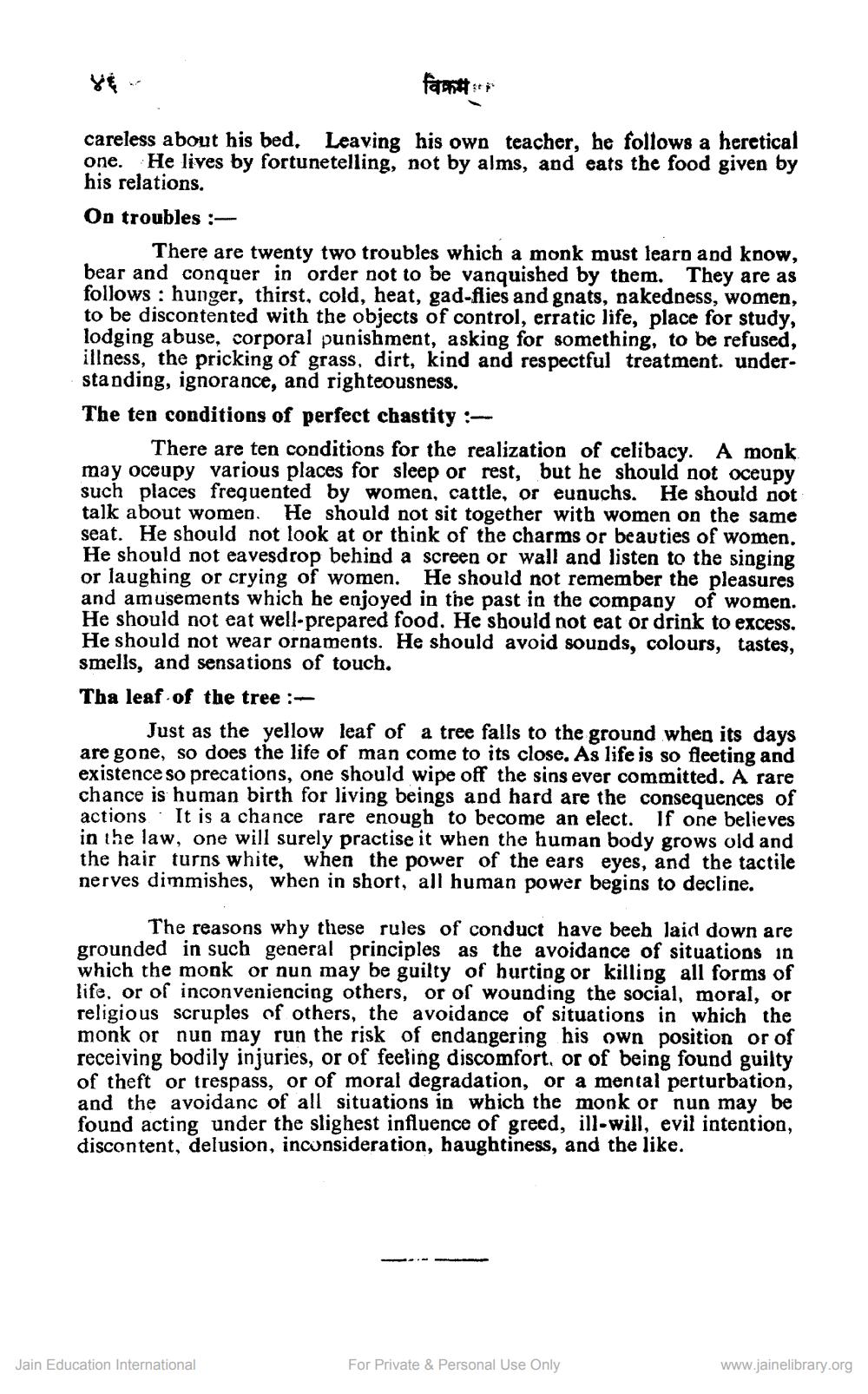________________
Faasti
careless about his bed. Leaving his own teacher, he follows a heretical one. He lives by fortunetelling, not by alms, and eats the food given by his relations. On troubles :
There are twenty two troubles which a monk must learn and know, bear and conquer in order not to be vanquished by them. They are as follows : hunger, thirst, cold, heat, gad-flies and gnats, nakedness, women, to be discontented with the objects of control, erratic life, place for study, lodging abuse, corporal punishment, asking for something, to be refused, illness, the pricking of grass, dirt, kind and respectful treatment. understanding, ignorance, and righteousness. The ten conditions of perfect chastity :
There are ten conditions for the realization of celibacy. A monk may oceupy various places for sleep or rest, but he should not oceupy such places frequented by women, cattle, or eunuchs. He should not talk about women. He should not sit together with women on the same seat. He should not look at or think of the charms or beauties of women, He should not eavesdrop behind a screen or wall and listen to the singing or laughing or crying of women. He should not remember the pleasures and amusements which he enjoyed in the past in the company of women. He should not eat well-prepared food. He should not eat or drink to excess. He should not wear ornaments. He should avoid sounds, colours, tastes, smells, and sensations of touch. Tha leaf of the tree :
Just as the yellow leaf of a tree falls to the ground when its days are gone, so does the life of man come to its close. As life is so fleeting and existence so precations, one should wipe off the sins ever committed. A rare chance is human birth for living beings and hard are the consequences of actions. It is a chance rare enough to become an elect. If one believes in the law, one will surely practise it when the human body grows old and the hair turns white, when the power of the ears eyes, and the tactile nerves dimmishes, when in short, all human power begins to decline.
The reasons why these rules of conduct have beeh laid down are grounded in such general principles as the avoidance of situations in which the monk or nun may be guilty of hurting or killing all forms of life, or of inconveniencing others, or of wounding the social, moral, or religious scruples of others, the avoidance of situations in which the monk or nun may run the risk of endangering his own position or of receiving bodily injuries, or of feeling discomfort, or of being found guilty of theft or trespass, or of moral degradation, or a mental perturbation, and the avoidanc of all situations in which the monk or nun may be found acting under the slighest influence of greed, ill-will, evil intention, discontent, delusion, inconsideration, haughtiness, and the like.
Jain Education International
For Private & Personal Use Only
www.jainelibrary.org




